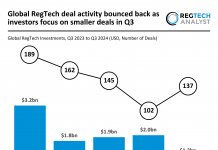Cloud access risk security company Ermetic has emerged from stealth mode in conjunction with the close of a $10m funding round.
The round was supported by Glilot Capital Partners, Norwest Venture Partners and Target Global.
Ermetic has also revealed its analytics-based solution which prevents cloud data breached by automating the detection and remediation of identity and access risks within infrastructure as a service (IaaS) and platform as a service (PaaS) offerings from Amazon, Google and Microsoft.
The platform automatically discovers all human and machine identities in the cloud and analyses their entitlements, roles and policies through a continuous lifecycle approach, it claims.
Its solution can detect permission gaps between privileges that should be maintained or revoked, as well as map and decouple complex and overprivileged relationships between identities and roles and generate turn-key policy changes that remediate cloud access risks.
Finally, it can analyse all access activity to detect and alert on privilege escalation, suspicious access and data deletion of credential theft.
Research from Gartner claims that 99% of cloud breaches occur due to human errors such as configuration mistakes.
Ermetic CEO Shai Morag said, “Monitoring and managing cloud access risk is challenging and becomes even more complex over time as users and applications accumulate permissions that far exceed their technical and business requirements, resulting in vulnerabilities that hackers can actively exploit.
“Using analytics and automation, Ermetic eliminates the manual effort and costs associated with determining the precise permissions necessary for each user, service or application in complex environments like AWS, Microsoft Azure and Google Cloud.”
Copyright © 2020 FinTech Global
Copyright © 2018 RegTech Analyst






